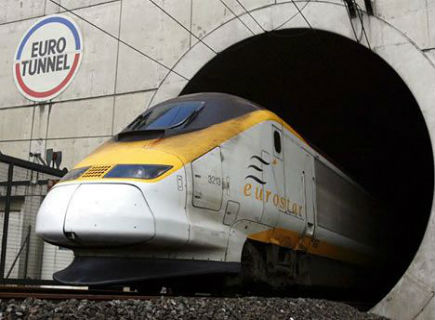Channel Tunnel Trains Get Mobile Coverage From July

Eurotunnel agrees deal with networks to provide 2G and 3G services in tunnel ahead of Olympics
Passengers travelling on Eurostar and Le Shuttle services will soon be able to use their mobile phones while in the Channel Tunnel, according to The Guardian.
A breakthrough in signal technology means that it is now possible to make calls from 250 feet underneath the sea.
Under the sea
 Eurotunnel has reportedly announced a deal with four mobile operators, including France Telecom Orange and SFR to provide services in the tunnel. The agreement comes after Alcatel-Lucent discovered a way of connecting an undersea tunnel to mobile signals for the first time.
Eurotunnel has reportedly announced a deal with four mobile operators, including France Telecom Orange and SFR to provide services in the tunnel. The agreement comes after Alcatel-Lucent discovered a way of connecting an undersea tunnel to mobile signals for the first time.
The plans were first revealed in December 2010, but it was suggested that the project would experience difficulties as Ofcom would have to issue spectrum licenses to allow French and British networks to share frequencies. It was reported at the time that the French networks would pay for the Calais to Folkestone tunnel and UK networks for the Folkestone to Calais tunnel.
Such an arrangement would mirror the symbolism shown during the construction of the Channel Tunnel, when engineers from both countries met in the middle, however it remains unclear which, if any, of the UK networks have signed up.
The deal will apparently be signed next month, with both 3G and 2G services available from July, just in time for the Olympic Games in London this summer. However it will also mark the end of one of the few remaining refuges from the mobile phone.
The same is true of the London Underground, which is close to receiving Wi-Fi services ahead of the Olympics as part of Boris Johnson’s original plans to provide a comprehensive Wi-Fi network in London.
Johnson had also pledged to bring mobile networks to the Tube for the first time, something which had previously been avoided due to the prohibitive cost of such a project. However the issue of funding ultimately led to the collapse of the scheme as networks were unwilling to pay the £150 million required and there also fears that it would not be completed on time as engineers would only be given access to the tunnels for three hours each night.